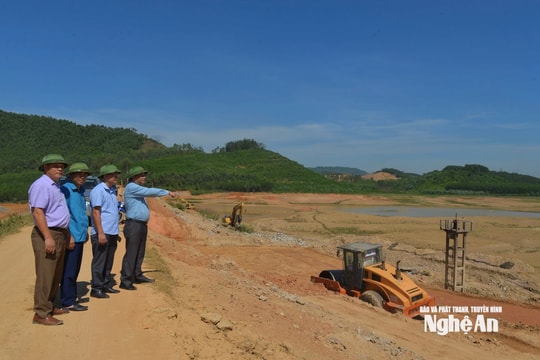Solutions to cope with climate change in Yen Thanh
(Baonghean) - In recent years, extreme weather has greatly affected social life as well as the development of crops and livestock. As an agricultural district like Yen Thanh, the locality has had many solutions to cope with climate change, in order to ensure food security and improve the quality of life for the people.
As a semi-mountainous plain district, located in the tropical monsoon climate zone of the Central region, Yen Thanh has a rather complex climate and weather, receiving large amounts of solar radiation all year round, with an average annual rainfall of 1,500 - 1,700mm and directly affected by many storms, accompanied by heavy rain, sometimes with torrential rain of over 300mm/day.
Water from the mountainsides and streams flows down, flooding the plains. In the low-lying areas, there are times when floods occur 2 to 3 times a year. Storms and floods also cause soil erosion, washing away the cultivated soil layer in semi-mountainous areas and causing acidification in deep areas.
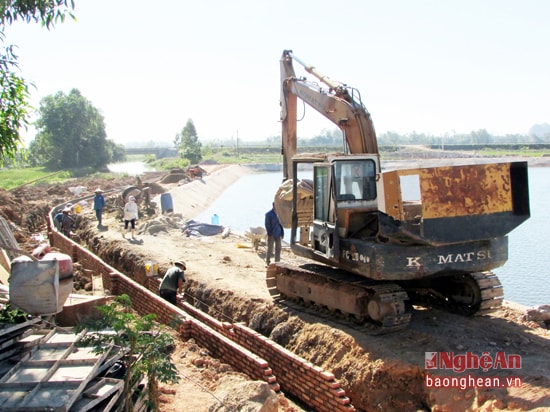 |
| The remote commune of Long Thanh (Yen Thanh) builds canals to serve production and people's lives. Photo by Anh Tuan |
To ensure stable production on 17,000 hectares of cultivated land, irrigation is one of the top factors that the district always pays special attention to. In addition to 252 small and medium-sized reservoirs and dams built, the district has over 3,000 km of irrigation canals that are upgraded and repaired annually, basically solving the problem of irrigation water for highland and wetland areas and drainage for over 3,000 hectares of cultivated land in remote communes.
In 2016 alone, Yen Thanh Irrigation Enterprise focused on upgrading a number of construction items such as: water supply sluices in Quan Hai Lake; main canal systems of Don Hung and Ke Sat Lakes. At the same time, mobilized all cadres, civil servants, and workers to coordinate with the people to dredge and clear the irrigation system, combined with good project management, effectively coping with climate change and mitigating natural disasters and floods, serving production.
In agriculture, livestock farming is identified as a key economic sector. To adapt to the current climate change conditions, the district's Department of Agriculture has focused on directing farmers to gradually shift from small-scale farming to concentrated, commodity-based farming; gradually replacing foreign pig breeds to reduce raising time, encouraging farm owners to use cooling and cold-proof systems, applying hygienic farming measures, and protecting the ecological environment.
Typically in Bao Thanh commune, the livestock model of Mr. Tran Quoc Lien's family has promoted efficiency in investing in building suitable barns for development. Particularly in the peak hot summer months, the water tank system, sprinkler system, and cooling fans have been put into operation to change the temperature. Although there are days when the outdoor temperature reaches 39 - 400C, but the temperature in the barn is still adjusted to be 10 - 15 degrees lower than outside.0C. Thanks to that, over 600 pigs raised last summer still developed stably, limited disease, saved investment costs, and brought economic efficiency to the family.
» Nghe An parishioners expose the corruption of priest Nguyen Dinh Thuc
» Priest Nguyen Dinh Thuc incited parishioners
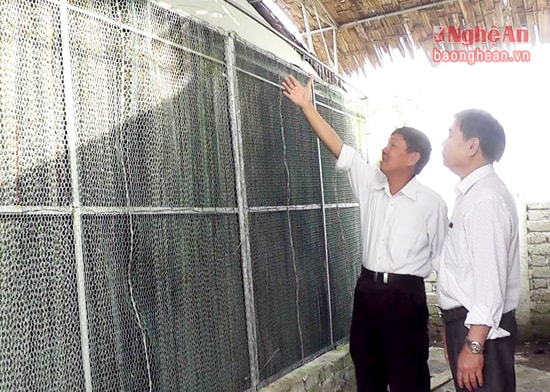 |
| With the cooling system, Mr. Le Van Hanh's mushroom farm (Hamlet 12, Son Thanh Commune, Yen Thanh) has oyster mushroom products to supply to the market in the summer. Photo by Anh Tuan |
Regarding cultivation, along with applying scientific irrigation measures, the district has focused on directing the conversion of crop structure towards climate adaptation; arranging crop calendars to avoid natural disasters. Mr. Nguyen Vuong Ngoc - Vice Chairman of Yen Thanh District People's Committee said: On the basis of planning specific areas by arranging plants and animals suitable to the land and climate so that in the near future as well as the far future there will be a stable and sustainable development. For the middle area using water from the self-flowing agricultural river system, this is a stable rice production area with 2 rice crops per year, the district will quickly apply scientific and technological advances to intensive cultivation of commercial rice varieties. Particularly for production in low-lying communes, which are often threatened by floods every year, production must strictly follow the crop calendar and be structured with short-term rice varieties with stable productivity to avoid natural disasters...
In recent years, the work of afforestation and reforestation of bare hills in Yen Thanh district has always been of interest. In addition to protecting 21,000 hectares of natural forest, each year the whole district also plants more than 1,000 hectares of new forest after exploitation, increasing the coverage to over 22%, contributing to improving ecological environmental conditions, being a source of water for the dam system, serving production and people's lives...
T. Duong - P. Hien - A. Tuan
(Yen Thanh Radio Station)
| RELATED NEWS |
|---|

.jpg)
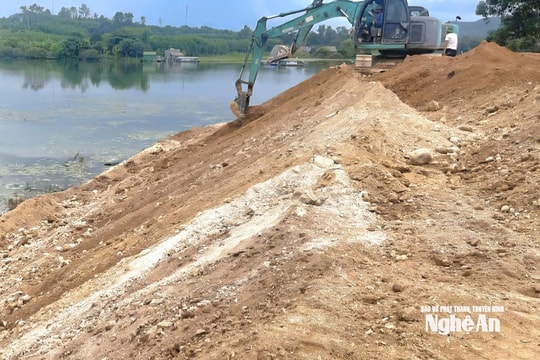
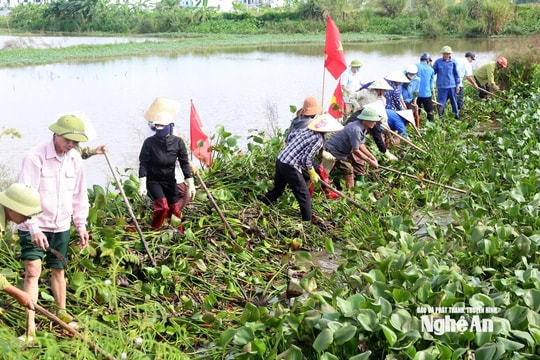
.jpg)
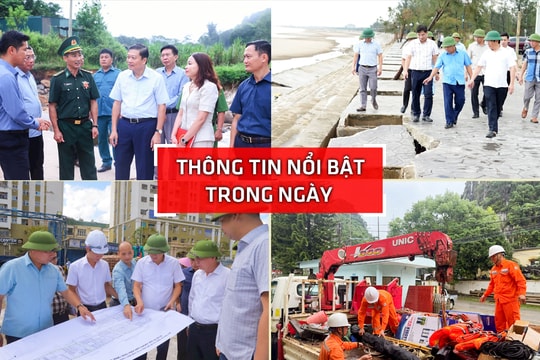
.jpeg)
